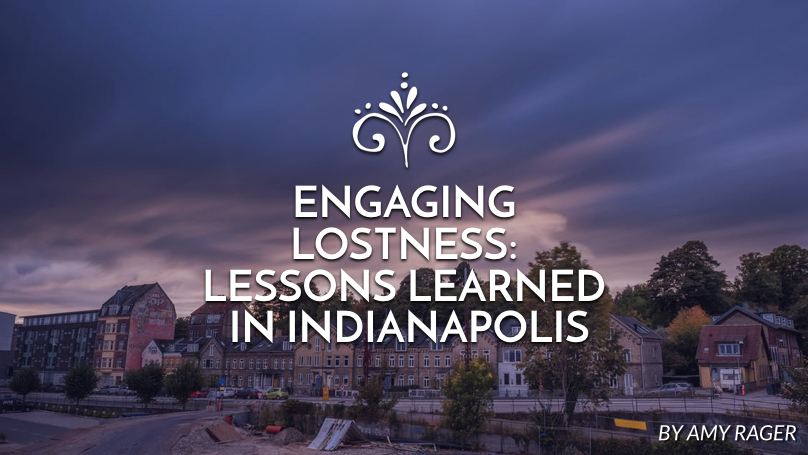The gospel is immeasurably powerful. Scripture is sharper than any two-edged sword; It glorifies the power of God and defines His gift of salvation. As promised in the Bible, the Spirit of God gives us words to say and strength to say them. So sharing the gospel should be easy, right? What do we need besides our Bibles, willingness and the Holy Spirit?
Over and over in Scripture, Paul considered how to present himself to unbelievers for the sake of the gospel. He never changed his message, but he frequently changed his tactics, habits and demeanor.
“To those under the law I became like one under the law (though I myself am not under the law), so as to win those under the law… to the weak I became weak, to win the weak. I have become all things to all people so that by all means I might save some” (1 Corinthians 9:20-22).
It’s amazing to read how Paul considered what factors would be engaging for those around him and what factors would be off-putting to the crowd and culture he was in each time he spoke. When my family and I moved from rural Kentucky to downtown Indianapolis, we learned to do the same.
The spiritual climate was different than what we were used to; Our new culture called for a re-evaluation of how to share the gospel. This practice of evaluation is one all believers should turn to frequently—especially as the culture of our nation continues to rapidly change. What is a reality in Indianapolis today was a reality in New York City and Los Angeles several years ago and will be a reality in my small hometown a few years from now. Culture trickles down from cities, and even rural believers would be wise to note how the gospel goes forth best in urban areas.
Four practices for the sake of gospel receptivity in the city:
1) Recognize where God is already moving in individuals’ lives. Christians have a tendency to see unbelievers as totally removed from the grace and work of God. In reality, God is moving in the life of your agnostic neighbor, the Muslims you work with and the Jehovah’s Witness knocking on your door. If “every good and perfect gift is from above” (James 1:17) then that passion your agnostic neighbor has for feeding the hungry is a gift from God and an evidence of His grace.
2) Celebrate everything you possibly can. A significant percentage of urban unbelievers tend to see Christians as nay-sayers and stone-faced legalists. There’s nothing better for a legalist’s reputation than a good celebration. Praise the good you see in others and the ways God is moving in their lives. If an openly agnostic mother with a child in your son’s class is passionate about the lack of resources for people of color in your neighborhood, commend it. Share how your faith has given you a soft spot for those hurting, too, and share how you are so thankful for people like her who give of themselves. When your Muslim neighbor gets a promotion, be genuinely excited. If the Lord has provided a beautiful day, celebrate by inviting your neighbors to play frisbee in the park. Build a positive report with the people God has placed in your life.
3) Build a gospel relationship, not just a gospel conversation. I love how Jesus always took a moment to talk with those He healed. He was a busy man, but He invested His precious time in people. They were seen. Even the woman with the issue of bleeding—who tried not to be seen—couldn’t escape Jesus’ desire for relationship. Unbelievers are not a project. They are people created in the image of God and should be invested in, not marketed to. While there is a place for stand-alone gospel conversations, the transfer from death to life typically doesn’t happen in the minute you have with someone in a grocery line. Yes, drop gospel nuggets as appropriate but also trust fellow believers in your city to pick up where you leave off and build a positive report with them on your behalf. Being pushy, threatening or off-putting is counter-productive to Jesus’ message of love.
4) Keep first things first. Keep your eyes on the prize. And that prize is the gospel! Don’t get distracted by secondary issues. If you’re sharing the gospel and your friend says she can’t understand what Christians have against drinking, don’t get lost in the weeds. Get back to Jesus as quick as you can. Jesus saves. The minor points of doctrine, which even Christians struggle with, are not the point. The woman at the well tried to sidetrack Jesus with the secondary matter of where it was proper to worship but Jesus pointed out how small that issue was in light of His coming (John 4:4-26). It’s okay to admit there are some things you don’t know and some issues the Bible doesn’t define. Paint a magnificent picture of your amazing God. Tell how though His ways are unsearchable, His love is unfathomable.
The city may require a different approach with the gospel but the millions of people, dearly loved by God, are worth it.
“Wisdom cries out in the street; in the squares she raises her voice. At the busiest corner she cries out; at the entrance of the gates she speaks “(Proverbs 1:20-21).
Published November 30, 2017



